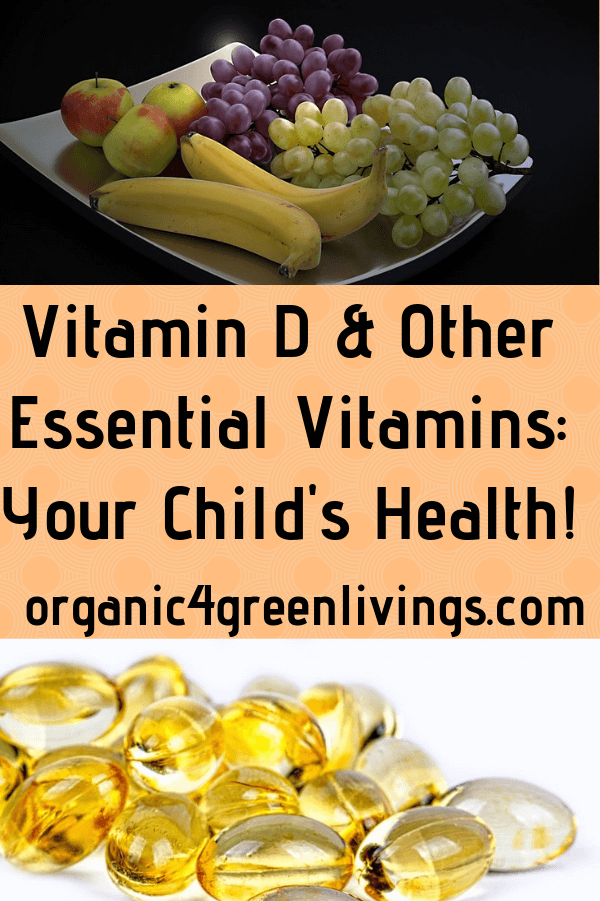Vitamin D & Other Essential Vitamins: Your Child’s Health
Vitamin D is an essential micro-nutrient that allows your child to absorb calcium from food sources. Vitamin D plays a major role in building bones and keeping them strong. Additionally, this vitamin also improves your child’s ability to fight infections. As illustrated in the infographic, Vitamin D and other essential vitamins are so important for your child’s health and over well-being.

How Much Vitamin D Does My Child Need?
Vitamin D is a fat-soluble vitamin, and like other vitamins belonging to this class, the body has the ability to store it, unlike water-soluble vitamins. This means that deficiencies of vitamin D are not common among adults, especially considering the fact that it is the only vitamin our body can synthesize when the skin enjoys some sunlight.
However, children’s growing bodies have larger demands for this vitamin, so a deficiency can easily occur. Like other vitamins, we measure it in International Units (IU). Your children’s daily requirement of vitamin D depends on their age. If they are under one year of age, they require 400 IU of vitamin D. If they are one-year-old or above, they need anything between 600 IU to 1,000 IU per day.
That said, some kids require even more vitamin D than the recommendations say for their age. These are kids who:
- Have certain health issues, like celiac disease, obesity, conditions affecting bones, multiple fractures, and cystic fibrosis; or
- Are taking certain medications (such as anticonvulsants) that prevent the body from properly utilizing vitamin D.
If your child has it at risk of developing a vitamin D deficiency, consult a doctor about their recommended daily intake of vitamin D.
How Can I Ensure My Child Gets Enough Vitamin D?
The best source of vitamin D is sunlight. About ten minutes of unprotected sun exposure to the back, abdomen, legs, and arms every day can help your kids meet their recommended daily intake of vitamin D. However, remember too much sun exposure can cause skin damage and even increase the risk of developing skin cancer later on.
Your kids can also get vitamin D from food, such as eggs, tofu, breakfast cereal, cremini mushrooms, and salmon. Besides these, you can give them milk and yogurt as both of them contain decent amounts of this vitamin which is crucial to common problems such as vitamins and acne.
If you believe your child is not getting enough sunlight or eating vitamin D rich foods, your last resort should be to give them a vitamin D supplement to prevent deficiency, with your doctor’s approval.
For more information about vitamin D and the remaining 12 vitamins that are essential to your child’s health and well-being, look at the following information that illustrates how you can recognize a deficiency and what foods to add to their diet to help them get enough of all the essential vitamins!

